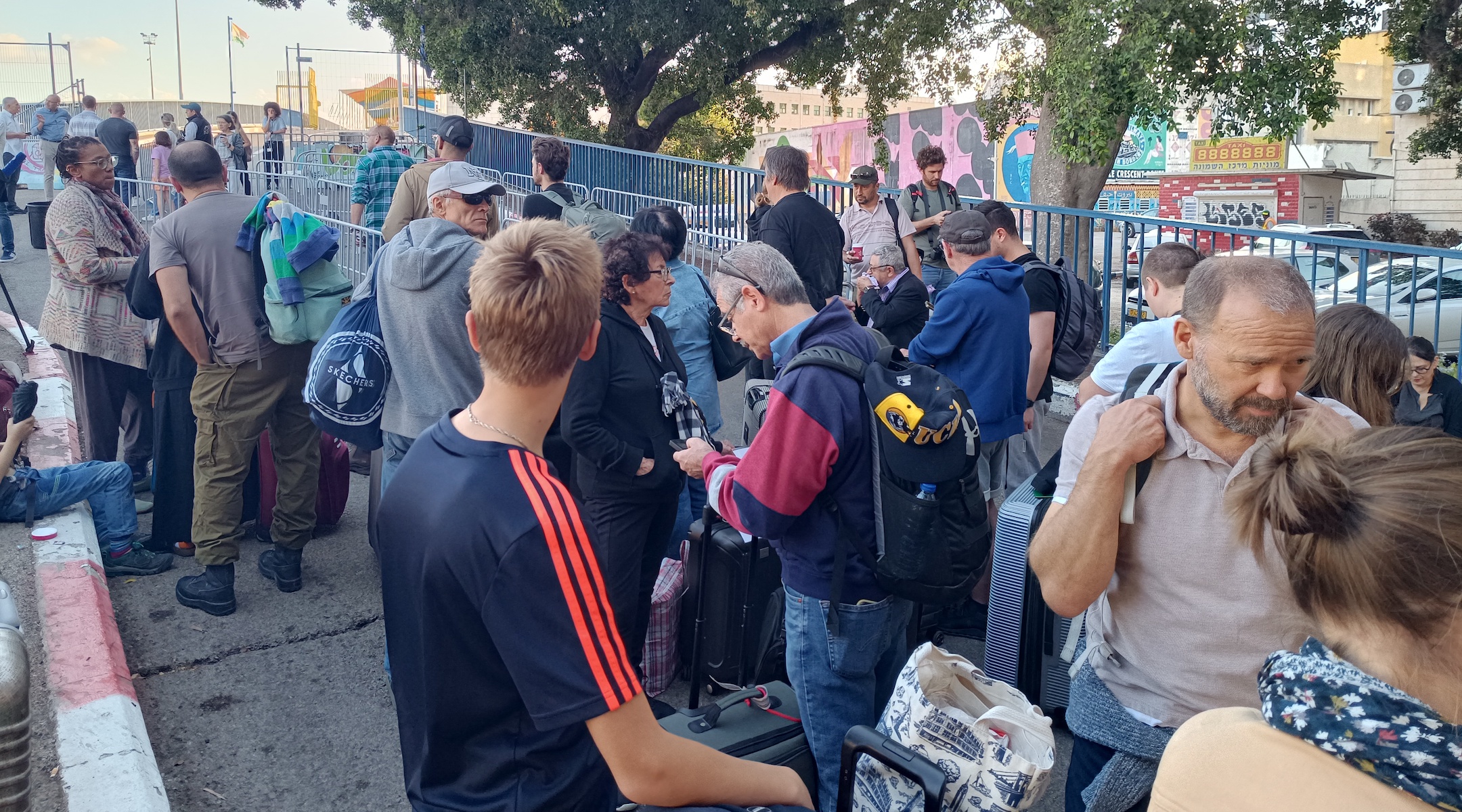Jewish poet Louise Glück, who won Nobel literature prize, dies at 80
Many of her poems drew on the Western canon, including the Hebrew Bible

American citizens wait to board a boat from Haifa to Cyprus on Monday, Oct. 16, 2023. (Eliyahu Freedman)
(JTA) — Louise Glück, a Jewish-American poet who was awarded the Nobel Prize in Literature in 2020, died Friday. She was 80.
Acclaimed since the 1970s for poetry that filtered personal and feminist themes though classical mythological, nature and religious imagery, Glück was also the United States poet laureate in 2003 and received a National Humanities Medal from President Barack Obama in 2015.
A product of what she once called a “rudimentary” Jewish upbringing, Glück wrote poems that sometimes reflected that distance. But she often returned for inspiration to the Western canon, including the Hebrew Bible — in books like “Ararat” (1990) — and Greek myth. In one poem, “Vespers,” she directly addresses God in talking about her lack of belief: “Perhaps/they see your face in Sicily; here we barely see/the hem of your garment,” an image taken from the Book of Samuel.
One critic, Daniel Morris, said her engagement with the Old Testament shows how “Glück’s ‘Jewishness’ is bound up with how she interprets canons both secular and sacred as multiple networks of identity construction.”
Another critic, Dara Barnat, said Glück’s poems incorporating Biblical stories were a type of “midrash” (alternative tellings of traditional Jewish text) and compared her in this regard to several other Jewish American women poets, including Shirley Kaufman, Alicia Ostriker and Jacqueline Osherow.
The Nobel Committee said Glück earned the literature prize — the first for an American and Jew since Bob Dylan’s in 2016 — “for her unmistakable poetic voice that with austere beauty makes individual existence universal.”
Glück (pronounced Glick) was born in New York in 1943 and grew up in the Long Island suburb of Cedarhurst. Her paternal Jewish grandparents owned a grocery after settling in New York City. Her father helped invent the X-Acto knife.
She attended Sarah Lawrence College and Columbia University.
She published 14 books of poetry, including “The Wild Iris” (1992) which won the Pulitzer Prize. Glück won the National Book Award for Poetry in 2014, for “Faithful and Virtuous Night.” Her book of essays “Proofs and Theories” (1994) was awarded the PEN/Martha Albrand Award for Nonfiction. She taught at at Goddard College, Williams College, Yale University and, most recently, Stanford University.
This article originally appeared on JTA.org.
A message from our CEO & publisher Rachel Fishman Feddersen
I hope you appreciated this article. Before you go, I’d like to ask you to please support the Forward’s award-winning, nonprofit journalism during this critical time.
At a time when other newsrooms are closing or cutting back, the Forward has removed its paywall and invested additional resources to report on the ground from Israel and around the U.S. on the impact of the war, rising antisemitism and polarized discourse.
Readers like you make it all possible. Support our work by becoming a Forward Member and connect with our journalism and your community.
— Rachel Fishman Feddersen, Publisher and CEO